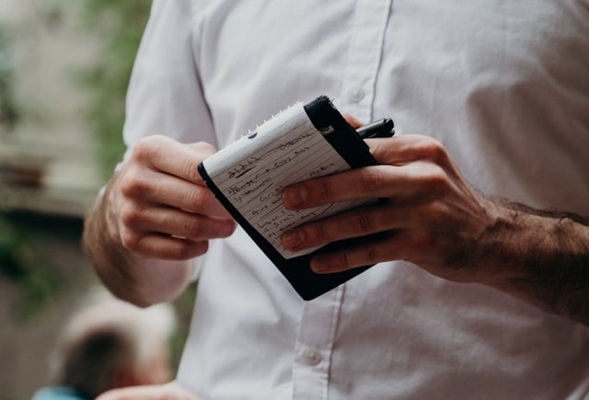I recently saw a receipt from a restaurant in Los Angeles, which included a 4% surcharge labeled ‘Healthy LA’. Presumably, it is supposed to pay for health care and other benefits for restaurant workers.
Apparently similar surcharges are being added in other California cities.
Now, this surcharge doesn’t appear on the menu. You don’t know ahead of time that it’s going to be charged. And it’s not clear what would happen if you just refused to pay it.
Instead of raising the prices of items on the menu, they leave those the same, and slap on the surcharge at the end.
Which made me think: Given how many times I heard President* Biden use the phrase fair share in his State of the Union address — always to spirited applause — maybe this points to a way to ensure that everyone does pay his fair share.
Imagine that you go to a restaurant. You order a meal, you eat it, you signal that you’d like to pay. The server takes your credit card, and comes back with a bill that includes a surcharge labeled ‘Fair Share’.
You have an average income, so the surcharge comes to 28% of the cost of the meal. Your $50 meal is now $64.
At the table to your left, the diners aren’t so well off, so their surcharge is only 10%. Their $50 meal is $55.
At the table to your right, the diners are millionaires, so their surcharge is 200%. Their $50 meal is now $150.
This is exactly the kind of thing that Biden is asking for, right? It implements the first half of the classic definition of Marxism: From each according to his abilities.
The rich should pay more simply because they have more.
How would such a surcharge be assessed? This would have been impossible a generation ago, but now technology has made it easy.
As soon as your identity is established (from your credit card or, if you’re paying with cash, from a government-issued ID, like a driver’s license), a government database that knows everything about you (including the adjusted gross income from your most recent tax returns) would calculate the ‘fair share’ of the your income that you should be paying for that meal.
Of course, there’s no reason this would have to be restricted to restaurants. Once the system is in place, a ‘fair share’ surcharge could be attached to every purchase, from Oreos to stereos, from cantaloupes to cars.
How do you suppose people would react to this? How would you react to it?
I just ask because this is exactly what happens now with school taxes. Different people, paying for the exact same thing (an educated citizenry), pay radically different amounts depending on how much their homes are worth.
And yet, people act as if it’s the most normal thing in the world, although, in any other context, they would regard it as insane.
What do you suppose might happen to our school funding mechanisms if people ever figure this out?
